Life
Sign up for our newsletter
We summarize the week's scientific breakthroughs every Thursday.
-
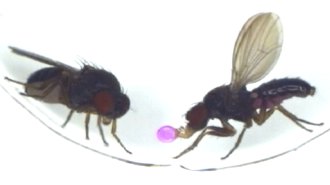 Animals
AnimalsA single protein makes lovesick flies spill their guts
Producing a male-specific protein in digestion-related neurons may have led to the evolution of an odd “romantic” barfing behavior in one species of fruit flies.
-
 Planetary Science
Planetary ScienceCosmic rays could, in theory, sustain life on other worlds
The hypothesis could extend the search for extraterrestrial life to include frigid planets with thin atmospheres and underground water.
-
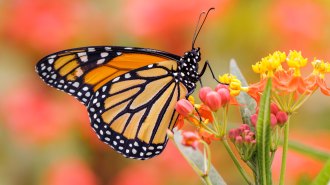 Animals
AnimalsWarm autumns could be a driver in monarch butterflies’ decline
In the lab, higher temperatures during fall migration led monarchs to break their reproductive pause, increasing their risk of death.
By Jude Coleman -
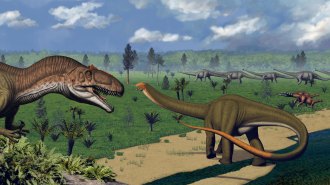 Paleontology
PaleontologyDinosaur teeth reveal some were picky eaters
The enamel in fossilized teeth reveals some dinosaurs preferred to eat particular parts of plants.
By Tom Metcalfe -
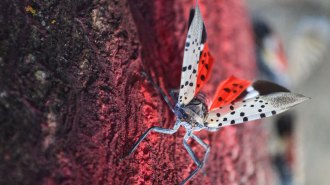 Life
LifeSquashing the spotted lanternfly problem may require enlisting other species
The invasive spotted lanternfly has spread to 17 states and can threaten vineyards. But bats, fungi, dogs and even trees may help control them.
-
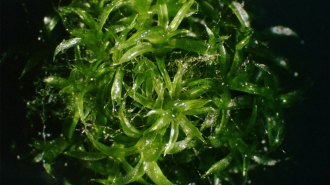 Plants
PlantsA newly discovered gene helped this moss defy gravity
A gene called IBSH1 helped spreading earthmoss thrive at high gravity, hinting at how plants adapted to photosynthesize on land.
- Genetics
This snail may hold a secret to human eye regeneration
Golden apple snails can regrow full, functional eyes. Studying their genes may reveal how to repair human eye injuries.
-
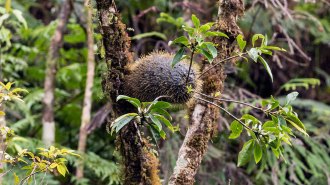 Plants
PlantsThese plants build ant condos that keep warring species apart
The unique architecture of some ball-like plants high in trees in Fiji lets violent ants live peacefully and feed the plant with valuable droppings.
By Susan Milius -
 Animals
AnimalsThe mystery of melting sea stars may finally be solved
A bacterium called Vibrio pectenicida may be melting sea stars along North America’s Pacific coast.
-
 Health & Medicine
Health & MedicineSome probiotics could feed, rather than fend off, infections
Probiotics containing Lactobacillus gasseri Lg-36 prevented C. difficile infections in mice, but L. acidophilus probiotics made infection more likely.
- Paleontology
A new species of ‘penis worm’ was discovered in the Grand Canyon
A trove of fossils, including a penis worm with a spiked, invertible throat, suggests this spot may have been a cradle of Cambrian evolution.
By Nikk Ogasa -
 Plants
PlantsPotatoes have their roots in ancient tomatoes
Knowing potatoes’ origin story could help future-proof the crucial crop against climate threats.